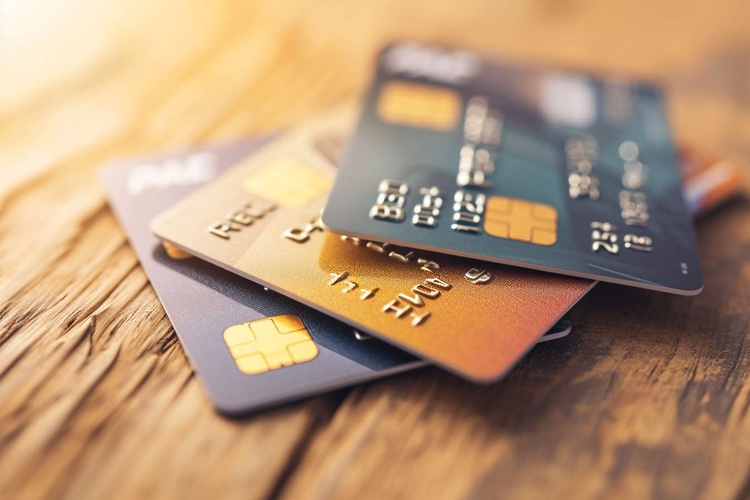Navigating the World of Credit Cards: A Comprehensive Guide
Credit cards have become an integral part of modern financial life, offering convenience, security, and potential rewards. However, understanding the intricacies of credit cards, especially for those with bad credit or looking to improve their credit score, can be challenging. This comprehensive guide will explore the world of credit cards, their impact on personal finance, and how to use them responsibly.

The credit limit on your card is determined by factors such as your credit score, income, and credit history. Each time you make a purchase, the amount is deducted from your available credit. At the end of each billing cycle, you’ll receive a statement detailing your transactions and the minimum payment due. Paying the full balance by the due date usually means avoiding interest charges, while carrying a balance will incur interest on the unpaid amount.
How can credit cards impact your credit score?
Credit cards play a significant role in shaping your credit score, which is a numerical representation of your creditworthiness. Your credit score is calculated based on several factors, including payment history, credit utilization, length of credit history, types of credit accounts, and recent credit inquiries. Using credit cards responsibly can help improve your credit score over time.
Making timely payments is crucial, as payment history is typically the most heavily weighted factor in credit scoring models. Keeping your credit utilization ratio low (ideally below 30% of your credit limit) is also important. Additionally, having a mix of credit types and a longer credit history can positively impact your score. However, applying for multiple credit cards in a short period can temporarily lower your score due to hard inquiries on your credit report.
What are the benefits and risks of using credit cards?
Credit cards offer several benefits when used responsibly:
-
Convenience: They provide a simple way to make purchases without carrying cash.
-
Rewards: Many cards offer cashback, points, or miles on purchases.
-
Consumer protections: Credit cards often include fraud protection, extended warranties, and purchase protection.
-
Building credit: Responsible use can help improve your credit score.
-
Emergency funding: They can provide a financial safety net in urgent situations.
However, credit cards also come with potential risks:
-
High interest rates: Carrying a balance can lead to significant interest charges.
-
Debt accumulation: It’s easy to overspend and accumulate debt that’s difficult to repay.
-
Fees: Late payments, cash advances, and annual fees can add up quickly.
-
Credit score impact: Misuse can negatively affect your credit score.
-
Temptation to overspend: The ease of use can lead to impulsive purchases.
How can you choose the right credit card for your needs?
Selecting the right credit card depends on your financial situation, spending habits, and goals. Here are some factors to consider:
-
Credit score requirements: Different cards cater to various credit profiles, from excellent to poor credit.
-
Annual fees: Weigh the benefits against any annual fees to ensure the card provides value.
-
Rewards programs: Choose a card with rewards that align with your spending patterns.
-
Interest rates: If you plan to carry a balance, look for cards with lower APRs.
-
Additional perks: Consider extras like travel insurance, purchase protection, or introductory offers.
What strategies can help manage credit card debt?
Managing credit card debt is crucial for maintaining financial health. Here are some effective strategies:
-
Pay more than the minimum: Aim to pay the full balance each month, or at least more than the minimum due.
-
Create a budget: Track your spending and allocate funds for credit card payments.
-
Use the debt avalanche or snowball method: Focus on paying off high-interest debts first or start with the smallest balances.
-
Consider balance transfers: Transfer high-interest balances to a card with a lower or 0% introductory APR.
-
Negotiate with creditors: Some issuers may be willing to lower your interest rate or waive fees.
-
Seek professional help: Credit counseling services can provide guidance and debt management plans if needed.
How can you build or rebuild credit with a credit card?
For those with bad credit or no credit history, secured credit cards can be an excellent tool for building or rebuilding credit. These cards require a security deposit, which typically becomes your credit limit. By using the card responsibly and making timely payments, you can improve your credit score over time.
Here are some tips for using credit cards to build credit:
-
Make small, regular purchases and pay them off in full each month.
-
Keep your credit utilization low, ideally below 30% of your credit limit.
-
Set up automatic payments to ensure you never miss a due date.
-
Monitor your credit report regularly for errors or signs of fraud.
-
Gradually apply for unsecured cards as your credit improves.
Credit cards can be powerful financial tools when used wisely. By understanding how they work, their impact on your credit score, and strategies for responsible use, you can harness their benefits while minimizing risks. Whether you’re looking to build credit, manage existing debt, or maximize rewards, the key is to approach credit card use with knowledge and discipline. Remember, your financial health is in your hands, and with the right approach, credit cards can be a valuable asset in your money management toolkit.





